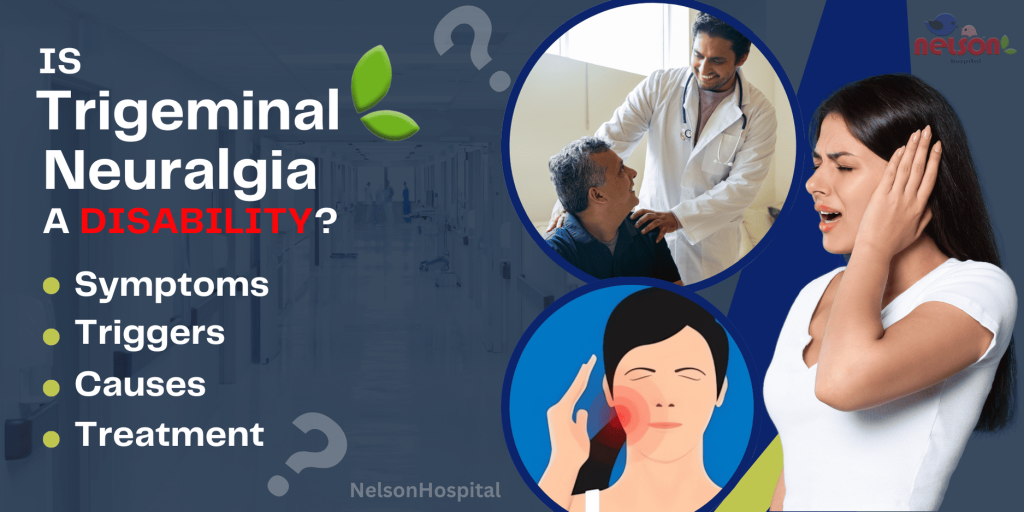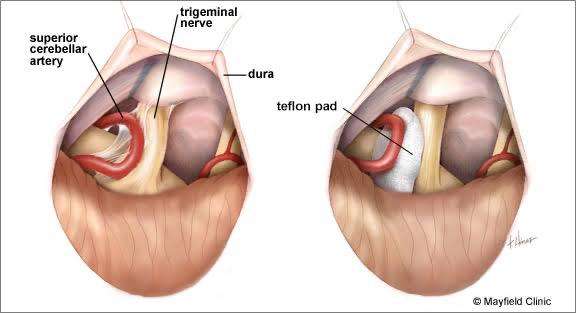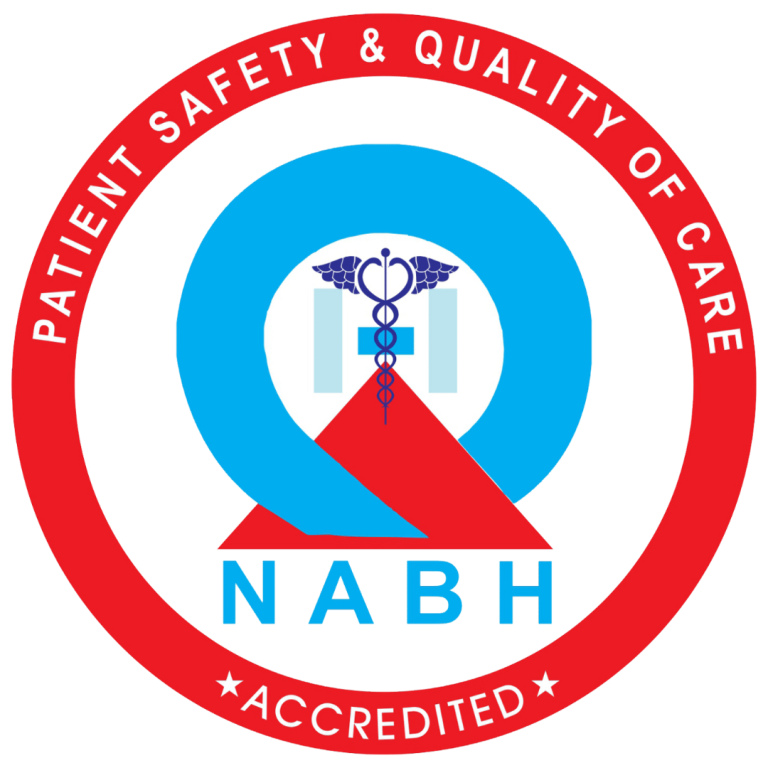
Trigeminal Neuralgia is often considered one of the most painful conditions affecting the face, making daily activities extremely challenging. The severe pain occurs on one side of the face, often so intense that patients are unable to eat, drink, brush their teeth, or even touch their face. This pain often leads patients to dental clinics, where multiple tooth removals may be performed before the correct diagnosis is made. Trigeminal Neuralgia is mainly a clinical diagnosis, and it can be confirmed using a special MRI Brain sequence.
What is Trigeminal Neuralgia?
Trigeminal Neuralgia, known in Hindi as टिक डौलौरेक्स and in Marathi as त्रिपृष्ठी तंत्रिकाशूल, is an unbearable condition affecting the facial nerves. The main sensory nerve of the face, the trigeminal nerve, is often compressed by a brain blood vessel (most commonly the superior cerebellar artery loop), which causes intense pain due to chronic damage to the nerve sheath. This compression leads to pain in areas where the trigeminal nerve supplies sensation.

Is Trigeminal Neuralgia Considered a Disease?
This condition is indeed considered a disease because it disrupts a patient’s quality of life significantly, sometimes even disabling them from performing basic activities like eating or speaking comfortably. This condition affects the trigeminal nerve, making it a chronic pain disorder with debilitating symptoms that can only be managed effectively through a thorough diagnosis and specialized treatment.
How is Trigeminal Neuralgia Treated?
This condition is a completely curable condition. Initially, medications are prescribed, and some patients find relief with long-term medication use. However, if medications become intolerable, ineffective, or cause side effects, surgical intervention is recommended. The most effective surgical treatment is called Microvascular Decompression of the Trigeminal Nerve.
Common Symptoms of Trigeminal Neuralgia
This ailment shows a sudden, severe facial pain, often described as intense or electric-shock-like. The pain may be triggered by simple activities such as chewing, talking, or even a light touch on the face. This intensity often leads patients to undergo unnecessary dental procedures before realizing the root cause.
What Causes Trigeminal Neuralgia?
Understanding the Causes of Trigeminal Neuralgia
This state is typically caused by compression of the trigeminal nerve by a blood vessel (often the superior cerebellar artery), which exerts pulsations against the nerve. Over time, this leads to chronic damage to the nerve sheath, causing severe pain in the areas supplied by this nerve.
Commonly Prescribed Drugs for Trigeminal Neuralgia
Medications are often the first line of treatment for managing Trigeminal Neuralgia. Drugs like anticonvulsants are commonly used, providing relief for some patients over extended periods. However, in cases where medications are insufficient, surgery becomes the best treatment option.
Is Trigeminal Neuralgia Recognized as a Disability?
Due to the disabling nature of this illness, it is often recognized as a condition that severely impacts one’s ability to perform daily functions. The unbearable pain and the impact on eating, drinking, and speaking highlights, why it can be considered a disability in severe cases, with surgery providing a long-term solution.
Finding the Best Neurosurgery Hospital in Nagpur for Trigeminal Neuralgia
Top Neurosurgery Hospitals in Nagpur for Trigeminal Neuralgia Treatment
Nelson Hospital in Nagpur offers specialized care for Trigeminal Neuralgia, with an expert team led by Dr. Sandeep W Iratwar and Dr. Shrikant Kalbagwar. This hospital performs a high volume of microvascular decompression surgeries with excellent success rates.
Why Choose Nelson Multispecialist Hospital for Trigeminal Neuralgia Care?
At Nelson Hospital, Trigeminal Neuralgia surgery is performed using a keyhole approach, which minimizes invasiveness and reduces complications. The incision size is about 3 cm, and the bone opening is comparable to the size of a two Rupee coin, allowing for minimal brain handling, fewer surgical complications, and quicker recovery times. Patients are typically discharged the day after surgery, free from pain and without the need for painkillers.
Conclusion: Overcoming Challenges of Trigeminal Neuralgia
This state is a disturbing condition that profoundly impacts a person’s daily life, often rendering simple actions like eating, speaking, or even touching the face unbearable due to intense pain. However, with advancements in diagnostics and treatment, effective management is achievable.
Initial medication can provide relief for some patients, but for those experiencing persistent pain, surgical options like Microvascular Decompression offer a permanent solution. Hospitals like Nelson in Nagpur, led by experts Dr. Sandeep W Iratwar and Dr. Shrikant Kalbagwar, provide minimally invasive, highly effective surgical care for Trigeminal Neuralgia, helping patients regain their quality of life.
With the right diagnosis and specialized treatment, those affected by this state can experience a dramatic improvement, allowing them to live pain-free and resume their daily activities with confidence.
Book an Appointment






